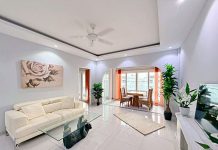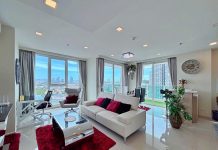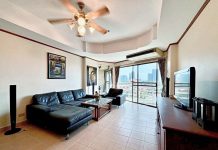Southeast Asia’s hotel residences real estate market has topped the USD 16 billion level and is growing. Spurring the trend is an emerging synergy between the region’s property developers and international hotel chains.
According to new research by hospitality consulting group C9 Hotelworks there are currently over 28,000 hotel branded residential units for sale across seven SEA nations represented by nearly 120 projects. The average sales price for urban offerings is USD$4,870 per square meter except in Singapore where the number skyrockets to US$25,000.
 C9 Hotelworks Managing Director Bill Barnett.
C9 Hotelworks Managing Director Bill Barnett.
One key catalyst for the rising tide has been an increasing number of mixed use projects that contain hotel and real estate components. Recognized hotel brands are being tapped to help engineer pricing premiums for property sales, which in market-wide terms has equated to 26% in urban locations and 14% for resort units compared to independent projects.
Commenting on the research, C9’s Managing Director Bill Barnett said, “the historic pattern of hotel and real estate marriages has decidedly moved away from the beach and leisure destinations and is gaining traction in urban city offerings. Traditional lifestyle buyers are being supplanted by end users, with Asians representing the largest transaction segment.”
The two leading Southeast Asian marketplaces are Thailand with 37% of all projects followed Indonesia at 22%. Key emerging counties are Philippines, Malaysia and Vietnam, though Cambodia has ranked in with some notable offerings. What is clear in looking at the landscape is that rapidly escalating land prices are driving developers to embrace mixed use projects in increasing numbers, and often add in commercial, sporting and tourism attractions as part of a broader lifestyle offering.
C9 Hotelworks report highlights a refocus by global hotel chains who have realized that in order to spur pipeline growth the essential need is there to partner with property developers in hotel residence offerings. Key groups in the sector are Louvre, Singapore’s Banyan Tree, Starwood, Shangri La and Ritz Carlton. Boutique chains such as Alila have also successfully gained profile with high value partnerships.
While hotel branded residences are currently a blue sky real estate product, C9’s Bill Barnett is mindful to comment, “Asia’s property cycles have typically seen these type of investment driven projects at the top of markets in the mid 1990’s and again in the mid Millennium, hence history is recreating itself, yet this time out at a considerably higher scale.”
(Source: Delivering Asia Communications)




